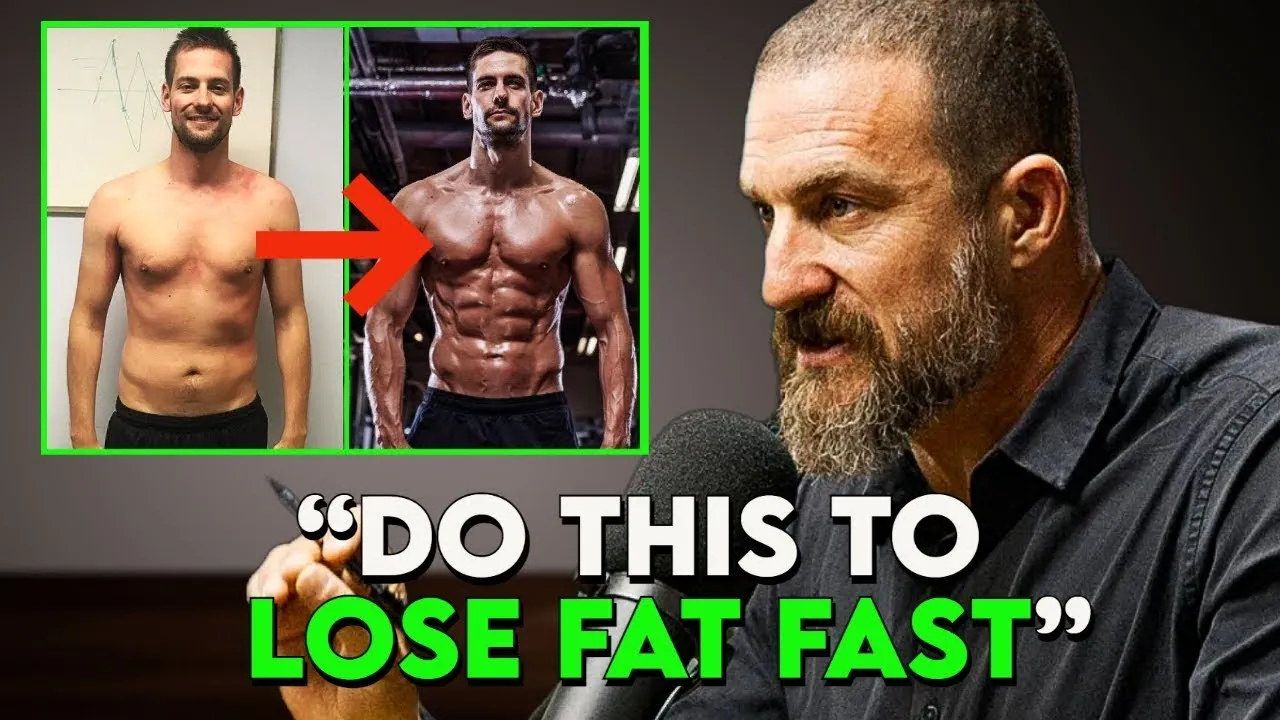
Intermittent fasting (IF) has emerged as a popular method for weight loss and overall health improvement. Neuroscientist Dr. Andrew Huberman dives deep into how IF not only aids in fat loss but also influences muscle maintenance, inflammation, recovery from illness, cognition, mood, and lifespan. This blog will explore the benefits of intermittent fasting, the science behind it, and how to effectively implement it into your daily routine.
What is Intermittent Fasting?
Intermittent fasting isn’t about what you eat; it’s about when you eat. The timing of your meals can significantly affect your body’s metabolic processes and hormonal balance. The fundamental principle is simple: alternate between periods of eating and fasting. This approach can help set favorable conditions in your body that promote fat loss and various health benefits.
Why Timing Matters
Dr. Huberman emphasizes that when you eat is as crucial as what you eat. Blood sugar and insulin levels rise after meals and take time to decrease. During fasting, other hormones become more active, which can help with fat burning and recovery. This hormonal fluctuation is essential for achieving the health benefits associated with intermittent fasting.
The Benefits of Intermittent Fasting
Intermittent fasting offers numerous benefits that extend beyond weight loss. Here are some key advantages:
- Fat Loss: IF can help shift your body’s energy usage towards burning fat instead of muscle or glycogen. Studies indicate that individuals practicing time-restricted feeding for extended periods exhibit metabolic adaptations that favor fat loss.
- Muscle Maintenance: While some weight loss strategies can lead to muscle loss, intermittent fasting tends to preserve lean muscle mass more effectively.
- Enhanced Recovery and Healing: Fasting may expedite recovery from sickness and improve general health due to its effects on inflammation and cellular repair processes.
- Improved Cognition and Mood: Research suggests that intermittent fasting may boost cognitive function and mood, likely due to enhanced brain health and reduced inflammation.
- Increased Lifespan: There is evidence to suggest that intermittent fasting may contribute to longevity by promoting cellular repair and reducing the risk factors associated with chronic diseases.
Understanding the Science Behind Fasting
Fasting triggers a variety of biological processes that can enhance health. One notable process is autophagy, where the body cleans out damaged cells and regenerates new ones. This process primarily occurs during sleep but can be enhanced through fasting.
Establishing Your Feeding Window
Determining the ideal time to eat is crucial for maximizing the benefits of intermittent fasting. Dr. Huberman suggests that your feeding window should ideally align with your natural circadian rhythms. This means eating during the active parts of your day—usually in the morning and early afternoon—and avoiding nighttime eating.
One effective strategy is to fast for 16 hours and eat within an 8-hour window, commonly referred to as the 16/8 method. For instance, if you stop eating at 8 PM, you wouldn’t eat again until noon the next day.
Practical Tips for Intermittent Fasting
Implementing intermittent fasting can be straightforward with the right approach. Here are some practical tips:
- Start Gradually: If you’re new to fasting, begin by extending your overnight fast by an hour or two and gradually increase it.
- Stay Hydrated: Drink plenty of water during fasting periods to prevent dehydration.
- Choose Nutrient-Dense Foods: When you do eat, focus on whole foods that provide essential nutrients to support your body’s needs.
- Incorporate Light Exercise: A short walk after meals can enhance digestion and aid in transitioning from a fed to a fasted state.
- Listen to Your Body: Pay attention to how your body responds and adjust your fasting schedule as needed.
Alternate Day Fasting
Another approach to intermittent fasting is alternate day fasting, where you alternate between days of regular eating and days of very low-calorie intake (about 500-600 calories). This method has been shown to produce significant weight loss and improve metabolic health.
Conclusion: Is Intermittent Fasting Right for You?
Intermittent fasting can be a powerful tool for those looking to lose weight and improve overall health. However, it’s not suitable for everyone. Individuals with certain health conditions, pregnant or breastfeeding women, and those with a history of eating disorders should consult with a healthcare professional before starting any fasting regimen.
Ultimately, the success of intermittent fasting lies in its sustainability. Choose a method that fits your lifestyle and preferences, and be patient as your body adjusts to this new eating pattern.
Frequently Asked Questions (FAQs)
1. What can I eat while fasting?
During fasting periods, you should focus on water, herbal teas, and black coffee. When eating, opt for nutrient-dense whole foods like vegetables, fruits, lean proteins, and healthy fats.
2. Can I exercise while fasting?
Yes, light exercise is beneficial during fasting. However, high-intensity workouts may be more challenging while in a fasted state.
3. How soon will I see results from intermittent fasting?
Results vary by individual, but many people see changes in body composition within a few weeks of following intermittent fasting, especially when paired with a healthy diet and regular exercise.
4. Can intermittent fasting help with muscle gain?
Yes, intermittent fasting can help preserve muscle mass while promoting fat loss, especially when combined with strength training.
5. Is intermittent fasting safe?
For most people, intermittent fasting is safe. However, it’s important to consult with a healthcare provider if you have underlying health conditions or other concerns.